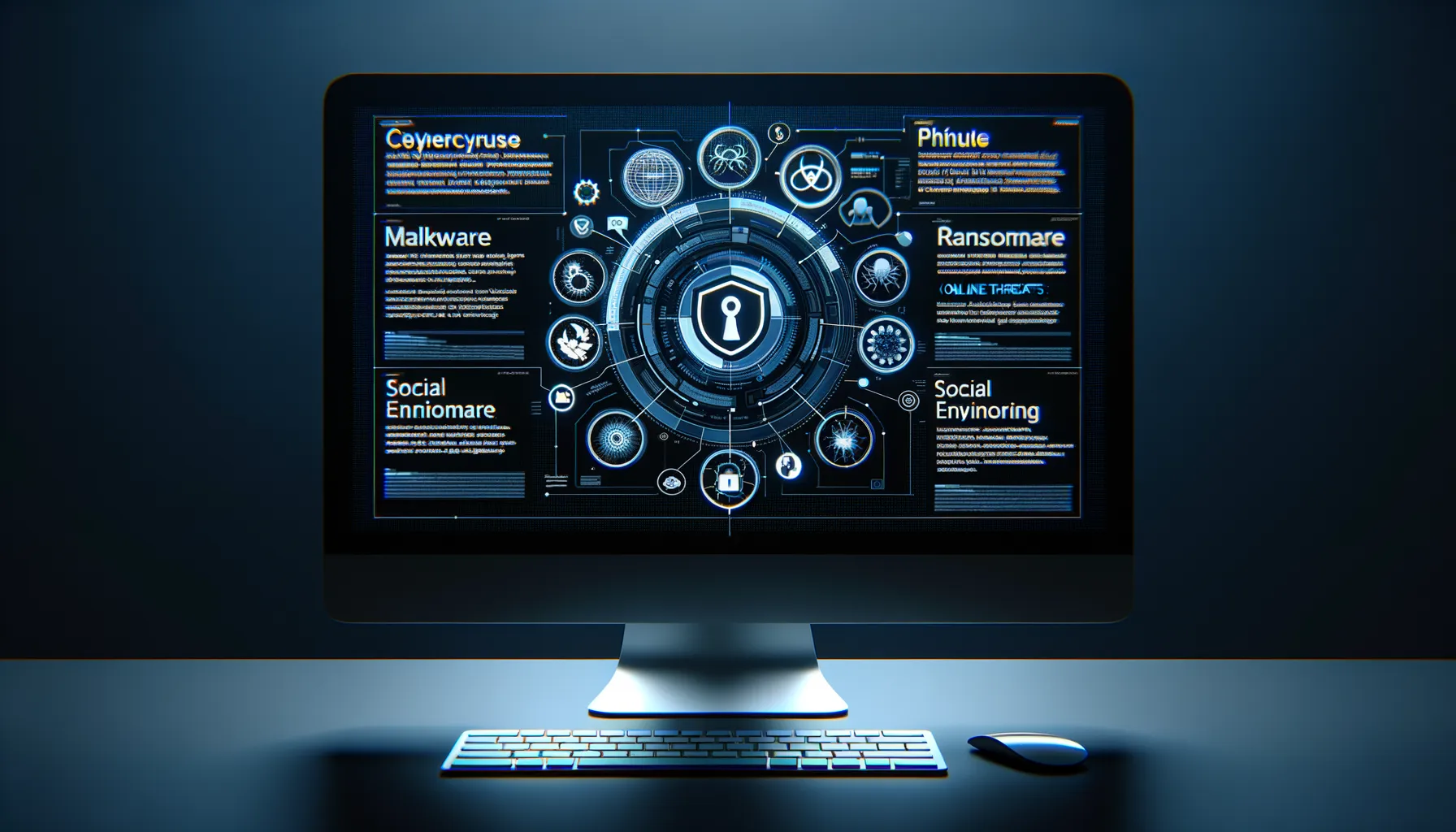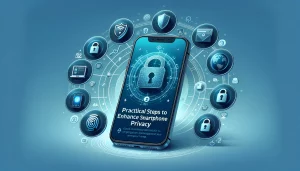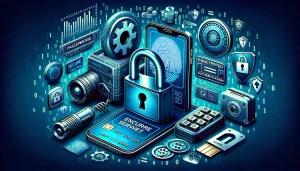Understanding the Cybersecurity Landscape in Nigeria
The Growing Digital Frontier in Nigeria
Nigeria’s digital world is like a bustling marketplace—vibrant, dynamic, but not without unseen dangers lurking in the crowd. From the thriving e-commerce platforms to tech-savvy entrepreneurs connecting globally, businesses in Nigeria are diving headfirst into the digital economy. But with opportunity comes risk, and the country’s cybersecurity landscape tells the story of both progress and peril.
The rapid expansion of internet access has been a double-edged sword. While it’s empowering startups and multinational companies alike, it has also opened doors for cybercriminals hunting for vulnerabilities. Picture this: A small logistics company in Lagos, eager to streamline operations, adopts an online payment system. Within weeks, they experience a ransomware attack that cripples their operations. This isn’t a rare tale—it’s becoming all too common.
Key Challenges in Navigating This Space
Understanding Nigeria’s cybersecurity terrain means recognizing its unique hurdles:
- Low awareness: Many businesses underestimate the sophistication of today’s cyber threats, leaving themselves exposed.
- Resource constraints: SMEs often struggle to allocate budgets for robust cybersecurity solutions, making them easy targets.
- Emerging threats: Social engineering scams and phishing attacks specifically tailored to Nigerian businesses are on the rise.
This complex landscape requires more than basic antivirus software; it demands foresight, commitment, and an unwavering focus on staying one step ahead of cybercriminals.
Common Cyber Threats Targeting Nigerian Businesses

Rising Waves of Invisible Threats
Picture this: your bustling Lagos office, phones ringing, deals closing, dreams building. All of a sudden, an eerie silence—your systems are frozen, files locked, and a chilling pop-up demands payment in cryptocurrency. This isn’t science fiction; it’s the grim reality of ransomware attacks, one of the most pervasive threats haunting Nigerian businesses. Hackers are evolving faster than we can blink, using sophisticated tools to sneak into systems like thieves cloaked in digital shadows.
But ransomware is just the tip of the iceberg. Have you heard about phishing scams? These cunningly crafted emails often come disguised as trusted contacts or institutions, tricking your employees into handing over sensitive information. The language looks polished, the links seem real—until they cost you data, money, and peace of mind.
- Business Email Compromise (BEC): This one’s crafty. Attackers mimic a CEO or finance officer, instructing urgent wire transfers.
- Insider Threats: Sometimes, danger comes from within—disgruntled employees or negligent staff mishandling access to critical systems.
Each of these cybercrimes preys on trust, exploiting vulnerabilities that many businesses aren’t even aware of. So, how prepared are you?
Strategies for Protecting Businesses from Cyber Threats

Building a Cybersecurity Foundation
Picture this: your business is like a fortress, bustling with activity. Without strong walls, it’s exposed to lurking dangers. To stand firm against the ever-evolving cyber threats, Nigerian businesses need to fortify their defenses. Begin with a robust cybersecurity plan. It’s not just an item on your to-do list—it’s the blueprint for survival.
Start by investing in reliable antivirus software and firewalls. These are your digital sentinels, standing guard at all times. But remember, technology alone isn’t enough. Train your employees—yes, every single one of them! A phishing email might seem harmless, but it only takes one click to let cybercriminals in. Arm your team with knowledge about spotting red flags, like suspicious links or unknown senders.
For extra security, implement multi-factor authentication (MFA). Why? Because passwords, no matter how complicated, are not unbreakable. MFA adds another layer, making hackers’ tasks infinitely harder. Think of it as having two padlocks on a door instead of one.
Staying One Step Ahead
In the cyber universe, being reactive isn’t enough—you must be proactive. Regularly update software and systems. Those “Update Now” notifications? They’re not annoying pop-ups; they’re shields against vulnerabilities.
Consider conducting vulnerability assessments periodically. Think of them as health check-ups for your business’s IT infrastructure. Here’s a quick checklist:
- Do a backup drill—can you recover critical data quickly?
- Monitor network traffic for anomalies.
- Audit user access—does everyone really need admin rights?
Finally, partner with cybersecurity experts. Trying to do it all yourself is like playing goalkeeper without gloves. Trust the pros to help you stay ahead of the game. With vigilance, preparation, and the right tools, your business can thrive in the face of adversity.
The Role of Government and Industry Collaboration

Building Bridges Between Public and Private Sectors
Imagine a football match where no one shares strategies—chaos, right? That’s often what battling cybercrime feels like without proper collaboration between the government and industries. For Nigerian businesses to stand tall against evolving threats, it’s crucial for the public and private sectors to team up and tackle risks proactively.
When governments bring regulatory frameworks while industries contribute real-world insights, magic happens. Picture this: a national cybersecurity task force that combines the sharp minds behind Nigeria’s tech startups with policymakers. Together, they can craft solutions that actually work in the trenches.
Here’s the kicker: collaboration isn’t about formality; it’s about action. For instance:
- Sharing data: Businesses reporting attack patterns can help authorities track trends and anticipate threats.
- Skill-building programs: Industry-led training workshops organized with government grants can nurture local cybersecurity professionals.
Bridging these gaps also fosters trust. When businesses know their voices are heard, they’re far more likely to take part in initiatives like adopting new compliance standards—or even shaping them! It’s not just teamwork; it’s Nigeria’s best line of defense.
Future Trends in Cybersecurity for Nigerian Businesses

Emerging Technologies Shaping Cybersecurity in Nigeria
The future of cybersecurity for Nigerian businesses is as dynamic as a bustling Lagos street on a Monday morning. It’s fast-paced, unpredictable, and filled with both challenges and opportunities. But one thing is clear: innovative technologies are stepping up as the frontline warriors.
Artificial Intelligence (AI) and Machine Learning (ML) are no longer buzzwords; they’re becoming indispensable tools. Imagine AI algorithms acting like an ever-watchful security guard, analyzing network traffic and identifying threats before they can cause havoc. It’s not just reactive anymore—it’s proactive!
Then there’s the rise of Blockchain Technology. Businesses dealing with sensitive customer data or financial transactions could soon rely on blockchain’s unbreakable encryption to safeguard their most valuable assets. No more sleepless nights worrying about breaches that expose critical information.
And let’s talk about cloud security. With Nigerian companies adopting cloud computing at lightning speed, securing these virtual environments has become top-priority. Tools like Zero-Trust Architecture are being built into systems, ensuring that “trust” becomes something you earn, not assume.
These trends aren’t just cool tech—they’re lifelines for businesses navigating a digital world fraught with risks.
Human-Centric Cybersecurity Innovations
While technology evolves, so does its human counterpart. Future cybersecurity solutions will increasingly lean on people-friendly designs. Cybersecurity training programs with gamification elements, for instance, are already turning boring compliance lessons into engaging, interactive experiences—because who says learning how to protect your business has to feel like a chore?
Additionally, biometric authentication is poised to take center stage. Passwords? Forget them. Soon, it’ll be your face, fingerprint, or even your voice guarding access to critical systems. This isn’t sci-fi—it’s real-world progress.
Lastly, let’s not overlook the power of collaboration. Expect to see stronger partnerships between Nigerian startups, government organizations, and global cybersecurity firms. Together, they’re crafting localized solutions tailored to the unique needs of the Nigerian market, because cybercriminals may innovate, but so do we.
The future is knocking, and it demands that Nigerian businesses remain vigilant, adaptable, and always prepared to embrace the next wave of innovation.





